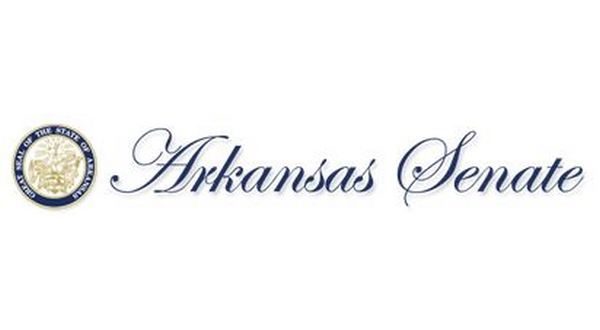
A state Senate committee on Tuesday advanced a bill which would require the state Board of Election Commissioners to conduct an election integrity review of election-related documents and records following each election cycle in the odd-numbered years after an election.
According to the Arkansas Democrat-Gazette, the Senate State Agencies and Governmental Affairs Committee endorsed Senate Bill 272 by Sen. Jim Petty, R-Van Buren.
Under the bill, the counties selected to participate in the election integrity review would be chosen at random in a public meeting of the state Board of Election Commissioners; designated by a two-thirds vote of the board if information obtained through the complaint process or by a certified election monitor indicates that a substantial violation of election or voter registration laws may have occurred in that county; or designated by the Legislature’s Joint Performance Review Committee.
The board would be required to pick 15 counties by designation or by random selection by Jan. 31 of the odd-numbered year to participate in the election integrity review, starting Jan. 1, 2025. The board may conduct an election integrity review of election-related documents and records prior to Jan. 1, 2025, as a pilot program.
The election integrity review would include not less than 15 counties and no more than 20 counties in an odd-numbered year under SB272.
Sen. Clarke Tucker, D-Little Rock, said he is worried some counties could be picked on during the selection process for the election integrity reviews because the bill doesn’t explicitly state that all of the state’s 75 counties would be reviewed over a decade.
Petty said his understanding is the state Board of Election Commissioners will address that through its rules after the bill becomes law.
Tucker said he’s also worried the Joint Performance Review Committee could pick on a particular county under the bill.
When conducting the election integrity review, the board may obtain and review any election or voter registration record and conduct interviews with election officials, elected officials or others under the bill. The board is required to engage in “the proactive review” of voter registration documents to the extent practical based on agency resources in order to identify errors and fraudulent activity reflected in voter registration records.
The board also is required to engage in the “proactive review” of absentee voting documents in order to identify violations of law, including fraudulent applications for an absentee ballot, fraudulent completion of an absentee ballot voter statement, fraudulent return of an absentee ballot, unlawful influence of an absentee ballot voter by a third party and failure to comply with the statutory requirement regarding the sending and receiving of absentee ballots.
The board would be required to adopt a report that describes the finding of the review no later than Dec. 31 of the year in which the review is conducted and to deliver a copy of the report to the attorney general’s office and Joint Performance Review Committee.
SB272 also would require the board to audit primary election results to ensure the integrity and accuracy of the voting process and allow the board to file a complaint within three years following an alleged violation of an election or voter registration law if the alleged violation relates to a felony criminal provision of election law or voter registration law, or affects the accuracy of a certified election result. The bill also would bar a person from forging the signature of a voter on an absentee ballot application, absentee ballot voter statement or voter registration application.
Daniel Shults, director of the state Board of Election Commissioners, told lawmakers he is seeking the creation of three new positions to help cover the increased workload at the board.
In other action on election-related bills, the Senate committee endorsed Senate Bill 255 by Sen. Matt McKee, R-Pearce, which would prohibit a state or county employee or official from taking or accepting any funding, grants or gifts for the purpose of paying election-related expenses from any source other than a city or incorporated town, the governing authority of the county, the state or the federal government. The bill would not apply to campaign contributions.
The committee also recommended Senate approval of Senate Bill 254 by Sen. Steve Crowell, R-Magnolia, which would eliminate write-in candidates in elections in Arkansas.
WebReadyTM Powered by WireReady® NSI










